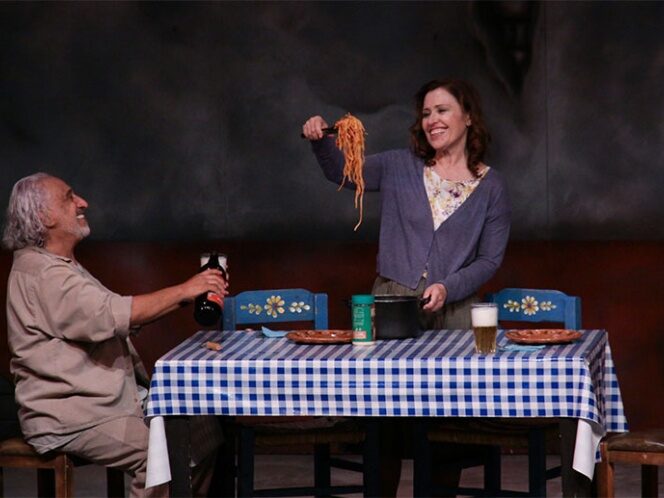Made in Mexico, an adaptation of Made in Lanús (1986) by Argentinian writer Nelly Fernández Tiscornia, has been playing to full house at Cartelera de Teatro in Mexico City since 2013. The play’s success, evinced by its more than 1000 performances can be attributed to both its seasoned actors as well as to the timeless topics of migration, love for one’s family and the motherland, as well as the human desire to find a better way of life.
The play reunites two couples who have not seen each other in 30 years, and the drama unfolds in Yoli and El Negro’s modest home. For economic reasons, and in search of a better life, Osvaldo and his wife Maricela went North. Osvaldo and El Negro are brothers, and the four grew up as friends. Yoli and El Negro stayed behind unable to abandon their beloved country and family. Their conversation, while mostly jovial, is also filled with nostalgia and bitterness. The couples also delve deep into their personal traumas as they discuss the divergent paths of their lives. To emphasize the emotional undertones the theatre comes alive with Mexican songs recognized around the world such as “Canción mixteca” and “Cielito lindo.” For Mexican audiences who would immediately identify the voices of Angélica María and Rocío Banquells, their renditions of the popular songs bring everything closer to home.
While the Argentinian director Manuel González Gil never doubted that the play would work in Mexico because it pays tribute to everyone’s homeland and audiences easily identify with the topics and the actors. Moreover, the play draws its spectators by localizing specific issues, incorporating Mexican music, and using local humor. According to Oscar Ramírez Maldonado the audiences are so pleased with the familiar presence of renowned movie and theatre actors such as María Rojo, Ofelia Media, Juan Ferrara, Alejandro Suárez, Rosita Pelayo, and Rafael Inclán among others, that they do not wait for the play to end in order to applaud. In fact, they welcome the actors with a warm round of applause as soon as they appear on the stage.
Because the play speaks to the feelings of fidelity for the homeland and values one’s origins, it can easily be adapted to any country’s history and simultaneously tell the individual stories of friends and families who split up for political, economic, or personal reasons.
This post was written by the author in their personal capacity.The opinions expressed in this article are the author’s own and do not reflect the view of The Theatre Times, their staff or collaborators.
This post was written by Margarita Vargas.
The views expressed here belong to the author and do not necessarily reflect our views and opinions.

















